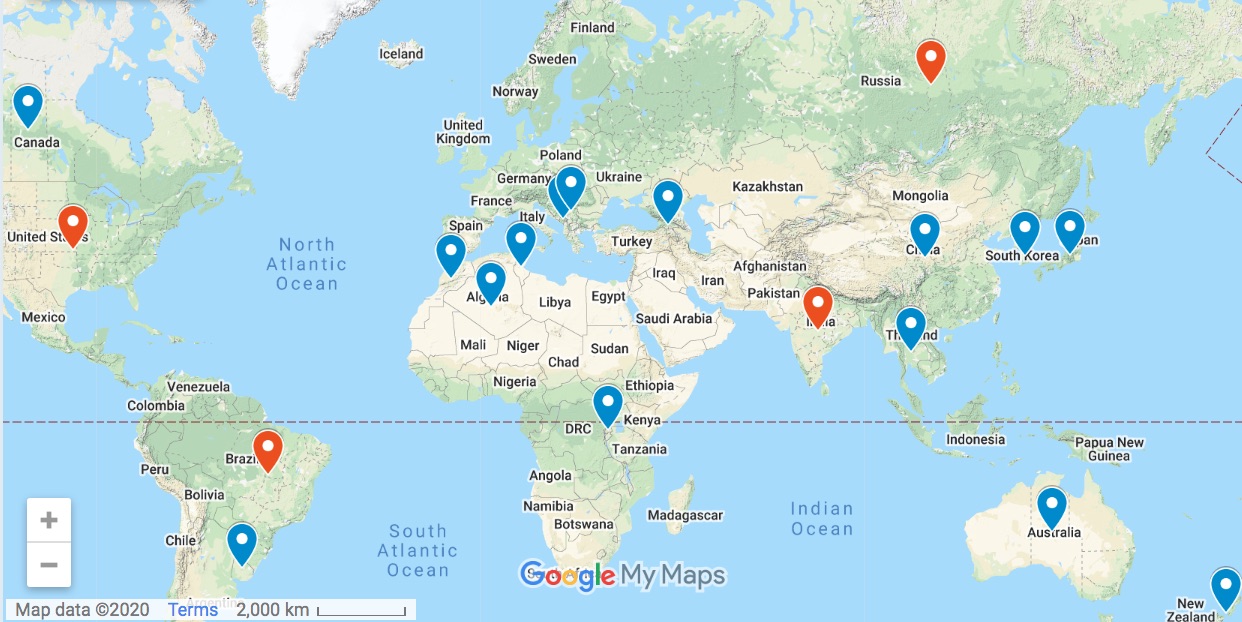
EU is to reopen external borders using health safety criteria
Viviane Vaz for Id International
(Brussels, 30 June 2020)
Are you from a non-EU country and you are eager to know if you can travel freely to the European Union this Summer? Or do you want a friend from outside EU to come over to visit you in Europe amid COVID-19 pandemia, without having to be quarantined?
The EU Council has officially confirmed today the list of 15 countries to be allowed to enter the EU with no restrictions when external borders reopen as from 1 July. It includes: Algeria, Australia, Canada, South Korea, Japan, Georgia, Morocco, Montenegro, New Zealand, Rwanda, Serbia, Thailand, Tunisia, and Uruguay. China could be added to this list if the government authorises the entry of European citizens, since reciprocity is one of the conditions required by Brussels. Brazil, India, Russia and the United States are in the list of blocked countries. Overview it with our 🗺️:

The chief of EU’s diplomacy Josep Borrell announced last 10 June that travel restrictions at the EU external borders would be “progressive and partially” lifted as of 1 July.
The European Commission advised the member States to reopen the borders with third countries taking into account “a certain number of principles and criteria”, such as similar numbers of COVID-19 control. Therefore, criteria such as testing, surveillance, contact tracing, containment, treatment and reporting are taken in consideration in the check list.
The European Council detailed that, regarding the epidemiological situation, third countries listed should meet the following criteria, in particular:
– number of new COVID-19 cases over the last 14 days and per 100 000 inhabitants close to or below the EU average (as it stood on 15 June 2020)
– stable or decreasing trend of new cases over this period in comparison to the previous 14 days
– overall response to COVID-19 taking into account available information, including on aspects such as testing, surveillance, contact tracing, containment, treatment and reporting, as well as the reliability of the information and, if needed, the total average score for International Health Regulations (IHR).
Exceptional cases
For countries where travel restrictions continue to apply, the following categories of people should be exempted from the restrictions:
– EU citizens and their family members;
– long-term EU residents and their family members;
– travellers with an essential function or need
Schengen associated countries (Iceland, Lichtenstein, Norway, Switzerland) also take part in this recommendation.
Regarding UK nationals, the European Commission explained they are still to be treated in the same way as EU citizens until the end of the Brexit transition period, that expires this year on 31 December.
Travel advice
Last, but not least, remember that, depending on certain conditions, EU countries can decide to reintroduce internal border control. So, before traveling, you should always double check with the embassy of the country you are planning to visit or with your travel agent.
The ReOpenEU application is also a good source of information:
Back to travel within the EU: new app informs criteria by destination

